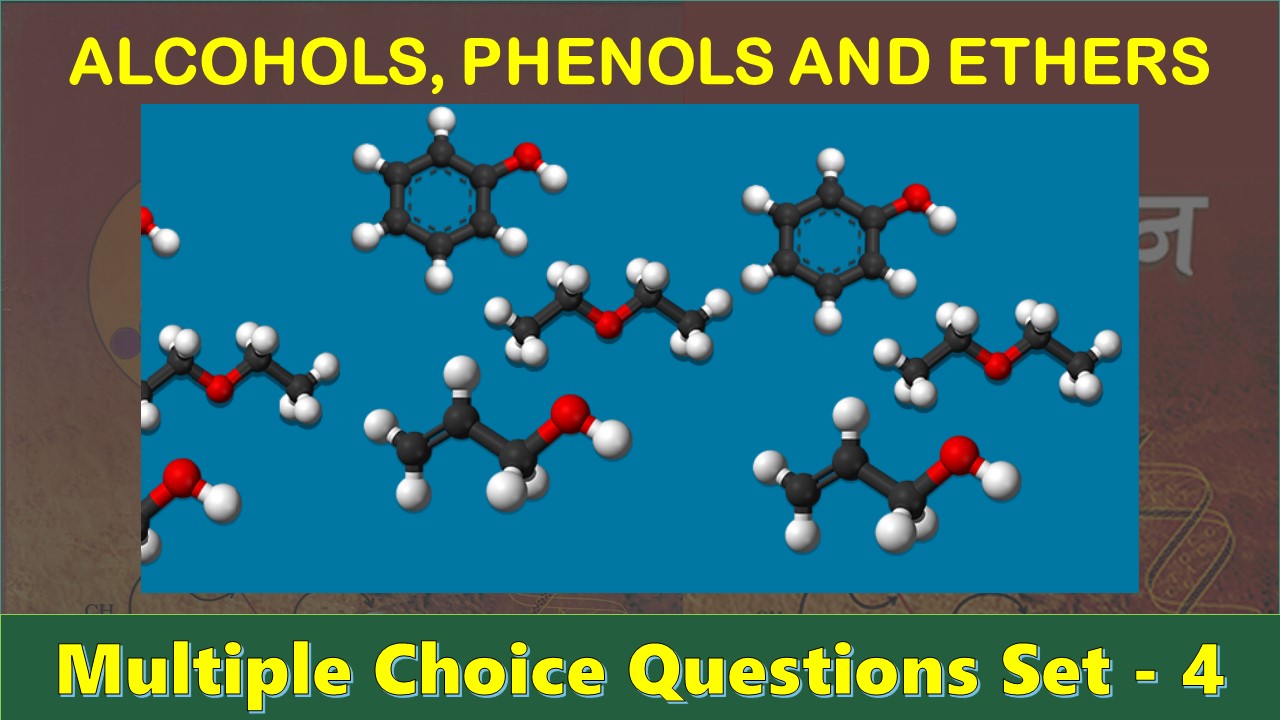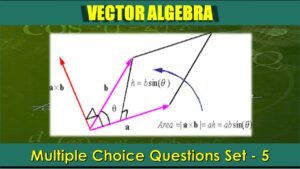CBSE Class 12 Alcohols Phenols and Ethers with Answers Multiple Choice Questions with Answers. MCQ Questions Class 12 Alcohols Phenols and Ethers with Answers with Answers Is Prepared Based on Latest Exam Pattern. Students can solve NCERT Class 12 Alcohols Phenols and Ethers with Answers MCQs with Answers to know their preparation level.
Students who are searching for NCERT MCQ Questions for Class 12 Alcohols Phenols and Ethers with Answers with Answers are compiled here to get good practice on all fundamentals. Know your preparation level on MCQ Questions for Class 12 Alcohols Phenols and Ethers with Answers with Answers. You can also verify your answers from our provided MCQ Class 12 Alcohols Phenols and Ethers with Answers with Answers. So, ace up your preparation with MCQ of Class 12 Chemistry Examinations.
MCQ Questions Class 12 Alcohols Phenols and Ethers with Answers - Set - 4
Question 1:
Which one of the following is not formed when glycerol reacts with HI ?
(a) CH3 — CHI — CH3
(b) CH3 — CH = CH2
(c) CH2OH — CHI — CH2OH
(d) CH2 = CH — CH2I
Correct Answer – (C)
Question 2:
A triglyceride can have how many different acyl groups?
(a) 3
(b) 2
(c) 1
(d) 4
Correct Answer – (C)
Question 3:
ClCH2CH2OH is stronger acid than CH3CH2OH because of:
(a) – I effect of Cl increases negative charge on O atom of alcohol
(b) – I effect of Cl disperses negative charge on O atom to produce more stable cation
(c) – I effect of Cl disperses negative charge on O atom to produce more stable anion
(d) None of these
Correct Answer – (D)
Question 4:
Polyvinylalcohol can be prepared by
(a) polymerization of vinyl alcohol
(b) alkaline hydrolysis of polyvinyl acetate
(c) polymerization of acetylene
(d) reaction of acetylene with H2SO4 in presence of HgSO4
Correct Answer – (A)
Question 5:
An aromatic ether is not cleaved by HI even at 525 K. The compound is
(a) C6H5OCH3
(b) C6H5OC6H5
(c) C6H5OC3H7
(d) Tetrahydrofuran
Correct Answer – (D)
MCQ Questions Class 12 Alcohols Phenols and Ethers With Answers
Question 6:
In the Victor-Meyer’s test, the colour given by 1°, 2° and 3° alcohols are respectively.
(a) red, colourless, blue
(b) red, blue, colourless
(c) blue, red, violet
(d) red, blue, violet
Correct Answer – (A)
Question 7:
The ether that undergoes electrophilic substitution reactions is
(a) CH3OC2H5
(b) C6H5OCH3
(c) CH3OCH3
(d) C2H5OC2H5
Correct Answer – (A)
Question 8:
Which of the following fact(s) explain(s) as to why p-nitrophenol is more acidic than phenol?
I. –I Effect of nitro group.
II. Greater resonance effect of p-nitrophenoxy group
III. Steric effect of bulky nitro group
(a) I and II
(b) I and III
(c) II and III
(d) II alone
Correct Answer – (D)
Question 9:
Ethanol when reacted with PCl5 gives A, POCl3 and HCl. A reacts with silver nitrite to form B (major product) and AgCl. A and B respectively are
(a) C2H5 C l and C2H5OC2H5
(b) C2H6 and C2H5OC2H5
(c) C2H5 C l and C2H5NO2
(d) C2H6 and C2H5NO2
Correct Answer – (B)
Question 10:
Ethanol can be prepared more easily by which reaction ?
(i) CH3CH2Br + H2O → CH3CH2OH
(ii) CH3CH2Br + Ag2O (in boiling water)→ CH3CH2OH
(a) by (i) reaction
(b) by (ii) reaction
(c) Both reactions proceed at same rate
(d) by none
Correct Answer – (C)
- NCERT Solutions Class 11 Chemistry Chapter 1 : Some Basic Concepts of Chemistry
- NCERT Solutions Class 11 Chemistry Chapter 2 : Structure Of The Atom
- NCERT Solutions Class 11 Chemistry Chapter 3 : Classification of Elements and Periodicity in Properties
- NCERT Solutions Class 11 Chemistry Chapter 4 : Chemical Bonding and Molecular Structure
- NCERT Solutions Class 11 Chemistry Chapter 5 : States of Matter
- NCERT Solutions Class 11 Chemistry Chapter 6 : Thermodynamics
- NCERT Solutions Class 11 Chemistry Chapter 7 : Equilibrium
- NCERT Solutions Class 11 Chemistry Chapter 8 : Redox Reactions
- NCERT Solutions Class 11 Chemistry Chapter 9 : Hydrogen
- NCERT Solutions Class 11 Chemistry Chapter 10 : The s-Block Elements
- NCERT Solutions Class 11 Chemistry Chapter 11 : The p-Block Elements
- NCERT Solutions Class 11 Chemistry Chapter 12 : Organic Chemistry: Some Basic Principles and Techniques
- NCERT Solutions Class 11 Chemistry Chapter 13 : Hydrocarbons
- NCERT Solutions Class 11 Chemistry Chapter 14 : Environmental Chemistry




